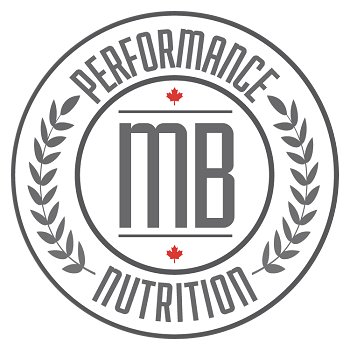Last updated on January 11th, 2024
In the past few years beetroot juice, bars and powder have been making waves on the market as new and natural performance-enhancing products.
These products claim to promote extended exercise endurance, improved energy and stamina, maximized exercise efficiency, better oxygen efficiency, antioxidant support, and immune system support.
How Do They Work?
The nitrates that are found in beetroot (and leafy green vegetables) break down into nitrites, which circulate in the body and are turned into nitric oxide (NO) as needed.
Elevated NO levels during exercise has been shown to improve aerobic endurance, energy output, blood flow, and muscle recovery between bouts of exercise. It may also benefit anaerobic endurance, especially in beginners.
Nitrates improve the body’s ability to produce adenosine triphosphate (ATP) from food. Why does this matter? ATP is life’s energy currency: it powers your cells, including those composing your muscles.
Nitrates are even recognized by the International Olympic Committee (IOC) as one of the few nutritional ergogenic aids based on robust evidence.
The Data
A study on eleven recreational athletes in their twenties showed that when they consumed baked beets they ran 3% quicker over 5km and had a 5% increase during the last mile compared to a placebo group who ate cranberry relish.
Another study took place from 2015 to 2016 on over 50 athletes using concentrated beetroot shots. It included the Dutch track cycling team, two members of which won Olympic medals in 2016.
In a randomized controlled trial, 11 resistance-trained men were given beetroot juice or a control (blackcurrant juice). Two hours later, each of them performed a bench press and was assessed on speed, power, and number of reps before failure.
After taking beetroot juice, the participants were able to generate more speed and power on the bench press, and to perform more reps before failing.
In another study done on 14 male recreational athletes, consumption of beetroot juice (490mL) was associated with a 4.2% increase in performance as assessed by an intermittent sprint trial.
How to consume it?
The optimal dosage of nitrate supplementation tends to be 6.4-12.8mg per kg body weight which is the range of:
- 440-870mg for a 150lb person
- 580-1,160mg for a 200lb person
- 730-1,450mg for a 250lb person
Nitrates do not exist as isolated dietary supplements because of regulations against high quantities of sodium nitrate. Instead, nitrate supplementation should take the form of a pre-workout meal incorporating leafy greens or beetroot.
This is another reason why we encourage athletes to get enough veggies in their diets every day.
Based on the above recommendations, a 150 pound person would need to consume at least 500 grams of beetroot (wet weight).
If you don’t like beetroot, you can consume any nitrate-rich vegetables like arugula, turnip greens, dill, spinach, turnips, or rhubarb (all of which have more nitrates than beetroot per 100g).
Consuming those vegetables in liquid form will increase the rate of nitrate absorption, since solid food particles take longer to digest.
Most studies on the performance-enhancing properties of nitrates used beetroot juice.
Beetroot powder is also an option (1⁄8 the weight of raw beetroot), but not in capsules, as you would need to take too many.
Be aware that finding quality supplements is a challenge.
This study looked at the actual amount of nitrate in beetroot juice supplements. To quote the researchers: “Only five products consistently provided ≥5 mmol of (nitrate) per serving, which seems to be the minimal dose required to enhance exercise performance in most individuals.”
If you don’t want to read the study, I can tell you that BeetElite by HumanN was NOT one of the five products that provided the minimal effective dose.
Nowhere on the BeetElite website do they give you the actual dosage of beetroot powder or nitrates in their products.
I decided to give them a call to discuss the study and try to find out exactly how much beetroot powder is found in BeetElite and what the yield of nitrates would be per serving.
Customer support regurgitated what’s on their website “equivalent of 6 whole beets, so it’s super concentrated and the best on the market” and said they don’t have an actual measurement of nitrates.
Based on the study that was done, BeetElite contains less than half of the minimal effective dose of nitrates.
They were able to tell me that each serving contains 4.8 grams of beetroot powder. They also added that their product doesn’t contain nitrates, but activates nitric oxide in the body.
I found this very strange and somewhat inaccurate as beetroot powder would contain nitrates.
On the other hand, PerformElite (which is a pre-workout product designed for endurance athletes by another popular brand in the OCR community called EndurElite) tells you right on their website that they have 1670 mg of beetroot powder in their product, which yields 500 mg of nitrates per serving.
This is an efficacious dose and a product I would recommend, especially considering what else you are getting in the PerformElite product.
You might have noticed that BeetElite contains more grams of beetroot powder than PerformElite. Nitrate content can be different even if one product shows more beetroot than the other based on size of the beet, soil conditions the beets are grown in, how the beetroot is processed and dried, and a multitude of other factors.
So without the actual nitrate yield per serving of BeetElite, the only data I have to go on is the study that tested it and found it below the effective dose. Sorry friends, don’t shoot the messenger. I was as surprised when I found out as you probably are right now.
The EndurElite supplement was not one tested in the study, because the study only used products where the main ingredient was beetroot powder and contained no other ingredients intended to alter NO bioavailability.
From a transparency perspective, on top of there being more information readily available to me as a consumer on the EndurElite website compared to the BeetElite website, I was able to get the CEO of EndurElite to answer an email within 90 minutes of sending it, whereas I had a very difficult time accessing any information from HumanN and everything felt super secretive.
When to consume it?
For best results, consume your juice, shake or purée 2 hours before exercise.
If you are using a beetroot supplement like a powder or bar, follow the directions given on the label.
You should also avoid using antibacterial mouthwash too often, and especially not right before consuming nitrate-rich foods as the bacteria in saliva plays a role in activating dietary nitrates.
Should I try it?
It certainly won’t do you any harm to add more nitrate-rich foods into your diet.
From a supplement perspective, it is best to take a beetroot-based product on a training day first rather than on the morning of a big race if you’ve never used one before.
We can’t be sure just how effective nitrates and beetroot supplementation are for endurance events like obstacle course racing yet as they seem to have the most benefit in exercises ranging from 1 minute up to 10 minutes.
Even though the magnitude of effect appears to be lesser for prolonged cardiovascular exercise, it can certainly provide some of the performance-enhancing benefits.
Will you be able to find a supplement that is high quality and provides enough nitrates to really maximize the benefits? It could be challenging, but yes.
Could you still “feel” something with one of those supplements that didn’t make the cut in that study? Maybe…
But at the price of some of those less effective supplements (especially if you’re purchasing in Canada and being charged in USD + shipping), you’d be better off eating beetroot and other nitrate-rich vegetables in your diet on a regular basis.
I personally like to include beetroot in my dinner the night before a race and I generally have a diet high in nitrate-rich vegetables.
Resources:
https://www.tandfonline.com/doi/full/10.1080/17461391.2018.1433722https://www.precisionnutrition.com/surprising-supplementshttps://www.precisionnutrition.com/beets-and-beetrootshttps://www.ncbi.nlm.nih.gov/pmc/articles/PMC5295087/https://pubmed.ncbi.nlm.nih.gov/31913252/https://pubmed.ncbi.nlm.nih.gov/23370859/https://pubmed.ncbi.nlm.nih.gov/22709704/https://nutritionfacts.org/video/whole-beets-vs-juice-for-improving-athletic-performance/https://examine.com/supplements/nitrate/https://journals.humankinetics.com/view/journals/ijsnem/29/4/article-p345.xml


